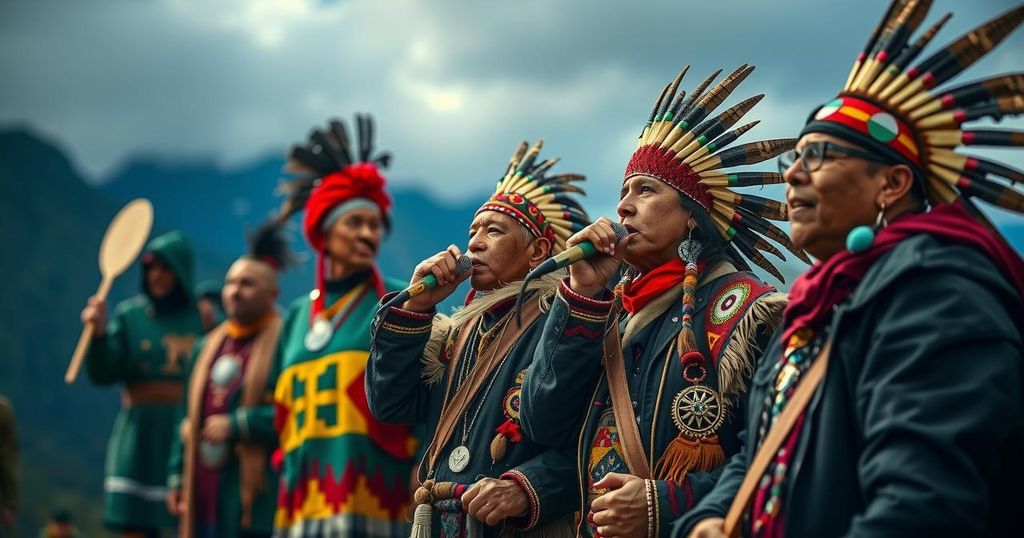Indigenous Peoples at COP29: Voices Against Climate Change

Indigenous representatives at COP29 in Baku articulate the severe impacts of climate change on their communities, while also sharing innovative, traditional solutions to confront these challenges. Their narratives highlight both vulnerabilities and resilience in the face of environmental degradation, advocating for the integration of Indigenous knowledge in global climate strategies.
Indigenous peoples globally are vocalizing their unique experiences with climate change at this year’s COP29 in Baku, Azerbaijan. Sharing personal narratives about the adverse impacts of rising seas, deforestation, pollution, and health crises, they also highlight the proactive measures being taken within their communities. These groups, often enduring severe weather variations exacerbated by climate change, draw on their deep-rooted traditions of environmental stewardship which have historically supported ecological balance. The collective insights from Indigenous representatives underscore their potential contributions in combating climate change, showcasing their enduring connection to nature and innovative solutions to these pressing issues. In interviews conducted with twelve Indigenous individuals, each articulated distinct experiences of how climate change has altered their way of life, yet they also conveyed a sense of resilience through localized solutions. For instance, an Indigenous source from Yakutsk noted the stark decline in snowfall, while a Mapuche individual from Chile described the alarming pollution of a vital lake. The Kichwa Otavalo community emphasized their intrinsic connection to natural elements as part of their climate action initiatives, whereas the Northern Arapaho community shared their battle against prolonged drought and its compounding ramifications.
The significance of Indigenous voices in climate discussions is increasingly recognized as their communities are disproportionately affected by climatic changes. The vulnerabilities faced by Indigenous peoples due to environmental degradation are compounded by their historical wisdom in land stewardship practices that have sustained ecosystems for generations. COP29 serves as a platform for these communities to convey not only their struggles but also their innovative approaches to fostering environmental resilience, making it crucial for policymakers to integrate their insights into broader climate strategies.
In summary, Indigenous peoples attending COP29 in Baku are shedding light on the profound impacts of climate change on their communities and emphasizing their traditional knowledge as a vital resource for climate solutions. Their collective narratives reveal a shared commitment to not only survival but also proactive environmental stewardship, which is pivotal for ensuring the health of our planet in the face of ongoing climatic challenges. Emphasizing their deep connection to nature, Indigenous voices must be integral in shaping global climate policies moving forward.
Original Source: www.sfgate.com






